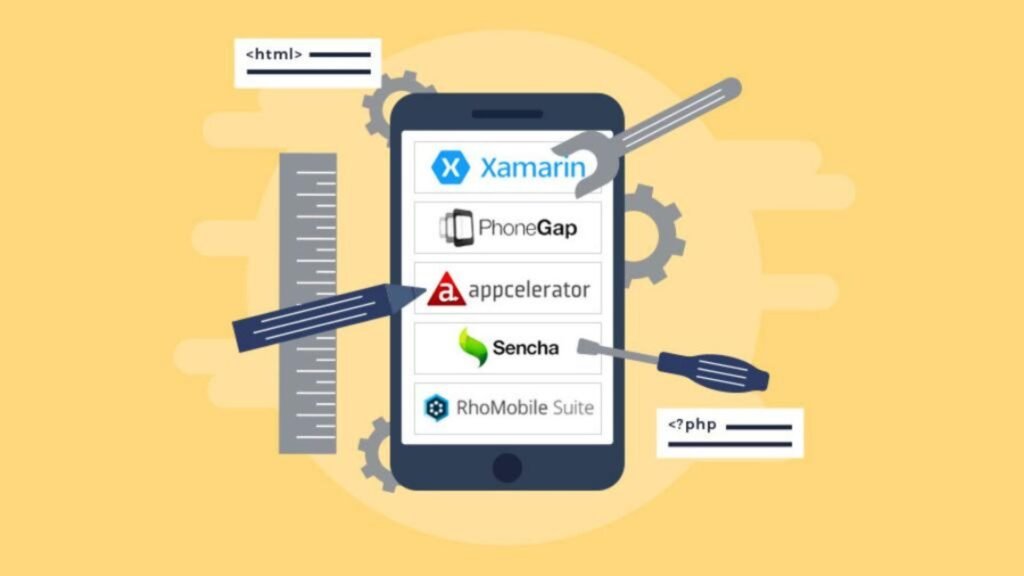App development platforms offer a range of tools and services that simplify and accelerate the process of building and deploying applications. These platforms can cater to various needs, from developing simple mobile apps to complex enterprise solutions. Here’s an overview of the key benefits of using an app development platform.

Accelerated Development Time
Pre-Built Templates and Components: App development platforms often provide pre-built templates, components, and widgets, allowing developers to quickly assemble their apps without having to code from scratch. This can significantly reduce development time and effort.
Drag-and-Drop Interfaces: Many platforms feature drag-and-drop interfaces that simplify the design and layout process. This is particularly useful for non-technical users or those with limited coding experience.
Rapid Prototyping: Platforms often support rapid prototyping, enabling developers to quickly create and test app prototypes. This helps in validating ideas and getting user feedback early in the development cycle.
Cost Efficiency
Lower Development Costs: By streamlining the development process and reducing the need for custom coding, app development platforms can help lower overall development costs. This is especially beneficial for startups and small businesses with limited budgets.
Reduced Maintenance Costs: Platforms typically handle updates, security patches, and maintenance tasks, reducing the burden on your development team and ensuring that the app remains up-to-date and secure.
Scalability: Many platforms offer scalable solutions, allowing you to adjust resources based on demand. This means you can start with a basic setup and scale up as your app grows, avoiding unnecessary expenses.
User-Friendly Interface
Intuitive Design Tools: App development platforms often come with intuitive design tools that make it easier to create visually appealing and functional user interfaces. These tools are designed to be user-friendly, even for those with minimal design experience.
No-Code/Low-Code Options: Some platforms offer no-code or low-code development options, allowing users to build apps with minimal coding knowledge. This democratizes app development and empowers a broader range of individuals to create and manage applications.
Integration and Compatibility
Pre-Built Integrations: Platforms typically provide integrations with popular third-party services and APIs, such as payment gateways, social media, and analytics tools. This simplifies the process of adding advanced features and functionalities to your app.
Cross-Platform Support: Many app development platforms support cross-platform development, enabling you to create apps that work on multiple operating systems, such as iOS and Android, from a single codebase. This saves time and effort compared to developing separate apps for each platform.
Consistent Updates: Platforms often receive regular updates that improve functionality, add new features, and enhance security. This ensures that your app remains compatible with the latest technologies and standards.
Enhanced Collaboration and Communication
Team Collaboration Tools: Many platforms include features that facilitate collaboration among team members, such as project management tools, version control, and real-time feedback mechanisms. This helps streamline workflows and ensures that everyone is on the same page.
Cloud-Based Development: Cloud-based platforms allow for remote development and access, making it easier for distributed teams to work together and manage projects from different locations.
User Feedback Integration: Some platforms provide built-in tools for collecting and analyzing user feedback. This helps in making data-driven decisions and improving the app based on actual user needs and preferences.
Security and Compliance
Built-In Security Features: App development platforms often come with built-in security features, such as encryption, authentication, and authorization tools. This helps protect user data and ensure that your app meets security standards.
Compliance Support: Many platforms provide tools and resources to help ensure compliance with industry standards and regulations, such as GDPR, HIPAA, or PCI-DSS. This simplifies the process of meeting legal and regulatory requirements.
Support and Resources
Comprehensive Documentation: Platforms usually offer extensive documentation, tutorials, and support resources to help developers navigate the development process. This can be invaluable for troubleshooting issues and learning how to use the platform effectively.
Community and Support: Many platforms have active user communities and support teams that can provide assistance, answer questions, and share best practices. This support network can be a valuable resource for overcoming challenges and improving your app.
Conclusion
Using an app development platform provides numerous benefits, including accelerated development time, cost efficiency, user-friendly design tools, and enhanced collaboration. These platforms simplify the development process, offer valuable integrations and support, and help ensure that your app meets security and compliance standards. By leveraging an app development platform, you can streamline your development efforts and create high-quality applications more efficiently.




